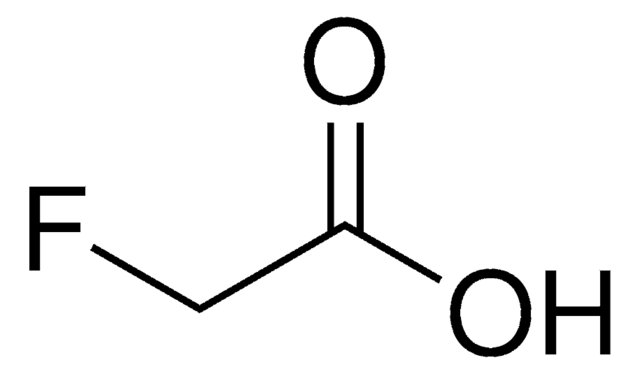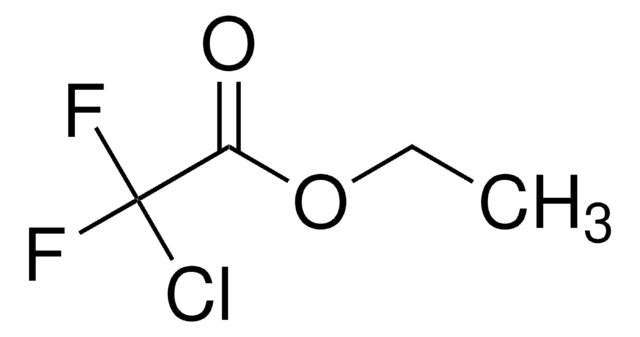142859
Difluoroacetic acid
98%
Synonym(s):
1,1-Difluoroacetic acid, 2,2-Difluoroacetic acid
About This Item
Recommended Products
Assay
98%
form
liquid
refractive index
n20/D 1.344 (lit.)
bp
132-134 °C (lit.)
mp
−1 °C (lit.)
density
1.526 g/mL at 25 °C (lit.)
SMILES string
OC(=O)C(F)F
InChI
1S/C2H2F2O2/c3-1(4)2(5)6/h1H,(H,5,6)
InChI key
PBWZKZYHONABLN-UHFFFAOYSA-N
Looking for similar products? Visit Product Comparison Guide
General description
Application
Signal Word
Danger
Hazard Statements
Precautionary Statements
Hazard Classifications
Acute Tox. 4 Inhalation - Aquatic Chronic 3 - Eye Dam. 1 - Skin Corr. 1A
Storage Class Code
8A - Combustible corrosive hazardous materials
WGK
WGK 3
Flash Point(F)
172.4 °F - closed cup
Flash Point(C)
78 °C - closed cup
Personal Protective Equipment
Certificates of Analysis (COA)
Search for Certificates of Analysis (COA) by entering the products Lot/Batch Number. Lot and Batch Numbers can be found on a product’s label following the words ‘Lot’ or ‘Batch’.
Already Own This Product?
Find documentation for the products that you have recently purchased in the Document Library.
Customers Also Viewed
Our team of scientists has experience in all areas of research including Life Science, Material Science, Chemical Synthesis, Chromatography, Analytical and many others.
Contact Technical Service

















